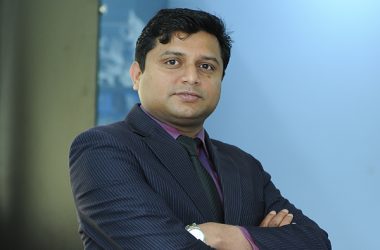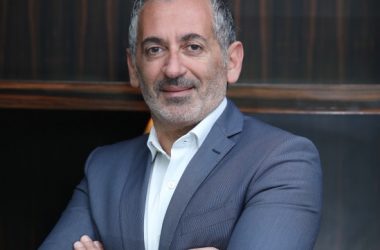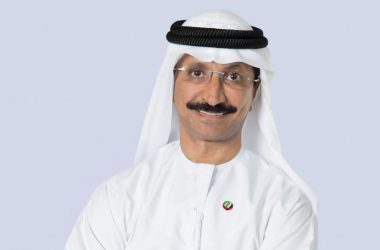 Being a hotel at the end of a manmade island may be an appealing prospect for tourists, but not for those running the hotel’s IT infrastructure. The Atlantis Hotel in Dubai beats the odds with a disaster recovery site.
Being a hotel at the end of a manmade island may be an appealing prospect for tourists, but not for those running the hotel’s IT infrastructure. The Atlantis Hotel in Dubai beats the odds with a disaster recovery site.
Due to Atlantis’s location on the Palm and close proximity to the water, the IT team identified a risk of having its servers affected by a natural calamity that could take place by the sea. The solution was to outsource the disaster recovery site to eHDF and house it in the IBM tower on the mainland.
“We’re six kilometres off the mainland and there’s always the waves breaking up really high. In addition to that we also thought about the single point of failure, which are the fibre services coming into the Palm. If anything was to happen there then we would be compromised,” says Joe Tesfai, senior VP of IT at Atlantis.
“We thought about the worst case scenario – what happens if somebody, who was doing a construction in the Palm somewhere, breaks in to the cables. We’d be completely isolated. So we thought about a disaster recovery site on mainland where we could then just pick up our laptops and go over there, connect and do business as usual,” he adds.
When it came to choosing a service provider, Tesfai says that whilst location was top priority, there were also others issues Atlantis had to consider during a six month selection process.
“We had to go through the process of finding a credible partner, making sure they were financially sound and were going to be there for us for a very long time – because you’re putting the heart of your system and a replica of it in their site, so it’s not something that we can do internally. We looked at all the service providers out here who can provide the data centre storage space,” he says.
“Some of them were in Dubai, some in Abu Dhabi and some in other areas. But the key to us for choosing eHDF was the location. It was sufficiently offsite in terms of making sure nothing would ever happen to them. At the same time there was their response to our needs and how they handled us as a customer. At the end of the day, as a service perspective this is important,” he adds.
After partnering with eHDF on the data recovery site, the next step was supporting the transition.
“We transferred our data and backed up our information to the DR site through du, who is also a service provider to Atlantis. We created a MPLS link between Atlantis and eHDF, and eHDF sits in du territory anyway, so it was very easy for us to make the connection between the two sites. The DR site is located in the IBM building,” Tesfai says.
From a network perspective, Atlantis is a Cisco shop. It runs one data centre at the hotel, which was set up when the hotel opened in September 2008, and has close to 90 servers running.
Atlantis’ IT team is made up of 24 employees, and Tesfai emphasises the importance and high managerial regard for IT at the hotel.
“IT is absolutely crucial to the internal functioning of the Atlantis. It’s a very strategic function within Atlantis because it drives and helps deliver revenues, and it helps increase revenues with all the online initiatives that we do. There are a lot of transactions that go through it on a daily basis,” he says.
“The management are fully supportive of IT initiatives. IT is part of the steering committee and also the executive board of Atlantis. We’ve got a high profile presence within the company,” he adds.
It is this high regard for IT, Tesfai says, that has put Atlantis at the “forefront of technology” in an industry that often lags behind.
“Hospitality has traditionally been at the backend of technology. Kerzner International and Atlantis are at the forefront of technology because we focus on technology to enhance the guests’ experience. We don’t just put in technology for technology’s sake. We do a lot of testing in the back and also look at what other groups have done,” he says.
He refers to an imbalance of technology uptake in the region because, whilst many hotels in the Middle East are ahead in terms of the technology they offer their customers, they are behind in terms of their actual IT infrastructure. He blames this on the “traditional hotelier mindset.”
“They forget technology because they want to speak to the guests. They expect their employees to be in front of the guest and managing the guest, but that’s the old way of hospitality. With the new way of hospitality you’ve got to look at the new generations of people coming into your hotel. The younger generation are the ones who are forcing us to utilise technology more effectively because they’re coming into the hotels with all these devices,” he says.
“We want to engage with them through their devices. It’s faster for us to refresh and change information when we engage in you through your devices. Although I’ve seen a lot of changes in hospitality over the last 20 years in terms of how fast it’s moving, it’s still behind other industries in terms of the adaptation of technology,” he adds.
Tesfai sees online as the way forward for hotels to not only attract more customers but to enhance their experience once they’re there.
“We’re moving a lot online because from the moment a guest or customer thinks about a holiday we want to be forefront in their minds. Once they’re online or have gone to their travel agent, and we’ve done our marketing, we can capture that guest,” he says.
“We want to take them through that whole journey from the point of making the reservation, doing their preferences and understanding who they are before they actually get here so that when they come in through the door we recognise them. Then when they’re here it’s about using technology to manage their whole stay and making it a very five star luxury experience. Even once they leave we still utilise technology to carry on speaking to them to continuously maintain that communication with them,” he adds.
Atlantis is attempting to engage this new generation of users and stay ahead of the technology market by launching a tablet and smartphone application this year that customers can use before, during and after their stay at the hotel.
“Once you’ve made a reservation and downloaded the application, even before you get here you have access to the hotel systems in terms of restaurants, spa, the nightclub, Water Park, dolphins – you’ll have all that information at your fingertips and if you want to book something you can use that application,” Tesfai says.
“We then transfer all that information using that application through the cloud into our systems so that you already know once you get here what your itinerary is. While you’re here, you can then use that application to order room service from anywhere and for any time, and also to start charging events and activities to your room,” he adds.
As well as capitalising on the mobility trend, Tesfai says the IT team at Atlantis is keeping ahead by embracing other key trends such as virtualisation and cloud.
“We’ve done virtualisation of servers, now we’re going to head towards virtualisation of desktops and also possibly networking. Cloud is a great initiative. I love the fact that it’s available. We’re actually a cloud to some other properties that we manage and we use cloud applications that are based in the US, Europe and elsewhere to run our business,” he says.
“Our central reservation system sits in Florida so to us it’s in the cloud, but it’s an internal cloud. We also use external clouds with other applications and other ERP systems,” he adds.





